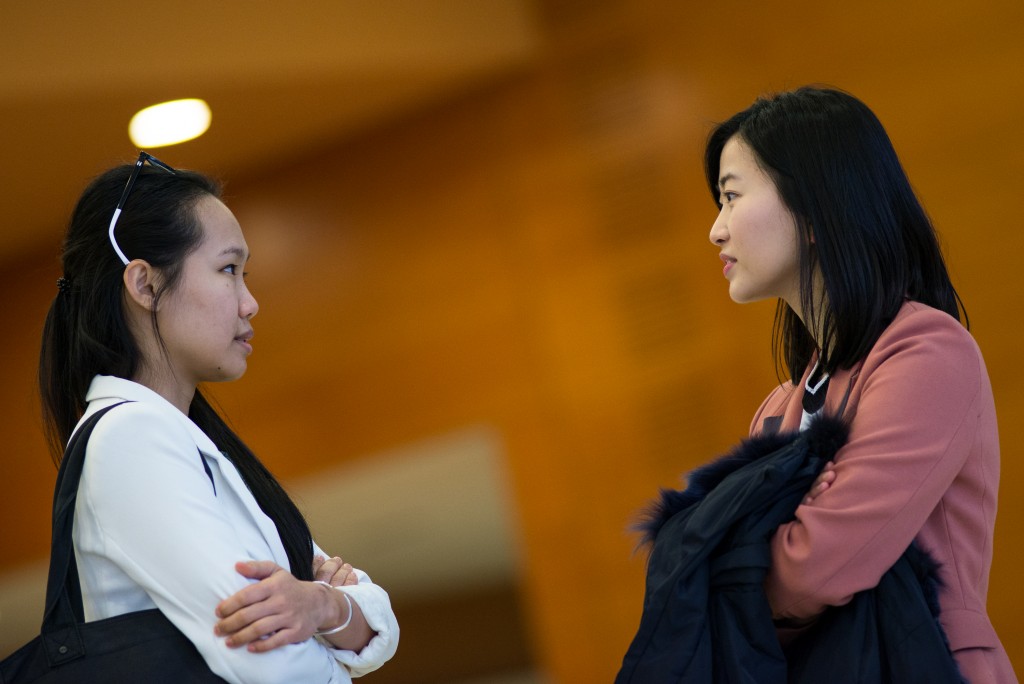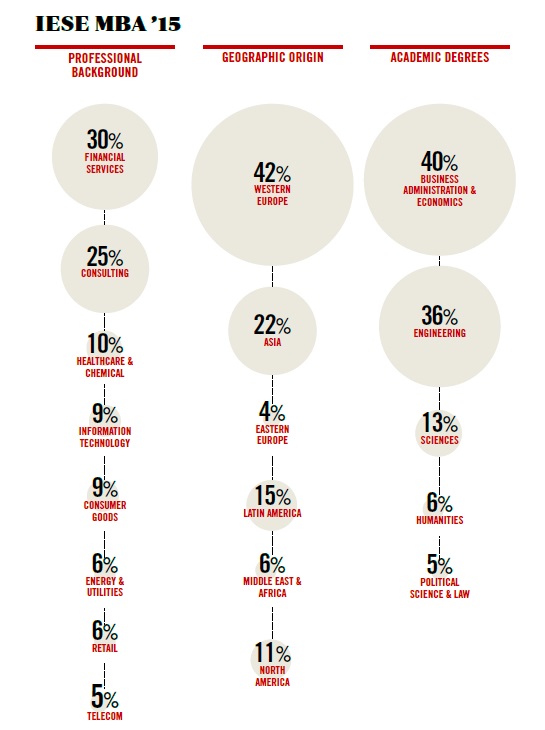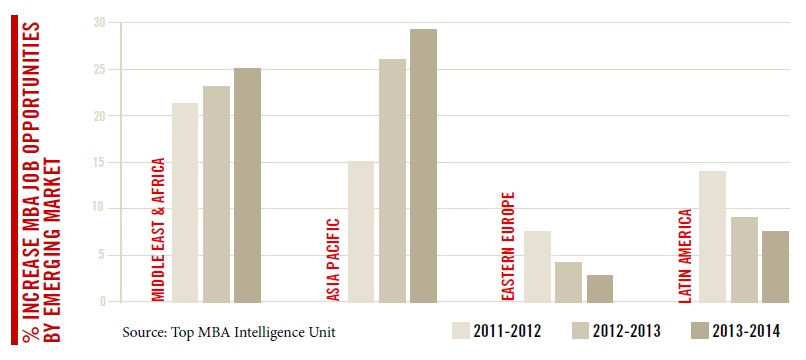Corporations need people with a deep knowledge of those markets, but also with an international profile and a solid general management education.
Western companies are struggling to find talent from these emerging markets who are a good fit for their corporate culture. Companies need to develop future leaders from those countries, people who can work for a time at company headquarters and then return to their countries of origin and maintain a long-term career within the company.
Around 40% of the students who pass the IESE MBA screening process come from emerging countries. These students have made the effort to leave their home countries and receive a good education, gain international experience and work in a multicultural context. This allows them to become more open and acquire a broader global vision. Living in Europe during the two-year program helps them develop the skills and capabilities they need to work in a European company.
At IESE, we believe that the knowledge and skills of people working in organizations are the main drivers of positive change and can have a great impact on the business World and society.
That is why we place great importance on training and developing people by combining a general management perspective, an international focus and profound knowledge of the global economic environment while working within a framework of business ethics.
The IESE 2013-2015 Full-Time MBA program has 280 outstanding managers of over 50 nationalities, 40% of whom are from growth markets. Students come to the program with a successful professional track record and spend 19 months further developing the knowledge and competences required to address the challenges companies are facing today.
In terms of geographic origin, professional background and academic degrees, the breakdown of students is as follows:
In recent years, the demand for MBA profiles to fill general management positions has increased in emerging markets. In the Middle East and Africa and Asia Pacific regions, the demand for MBAs continues growing at a rate of over 20%. In Eastern Europe and Latin America, the situation is improving at a slower rate.
In the IESE 2013-15 Full-Time MBA program, 40% of the students come from Asia, Latin America, Eastern Europe, and Middle East and Africa. Not a bad percentage at all!











I have many friends who has studied an MBA in IESE. Congratulations for your perfect work.